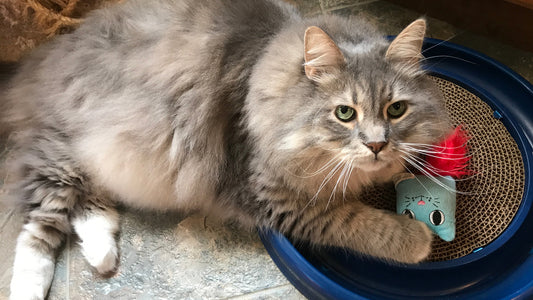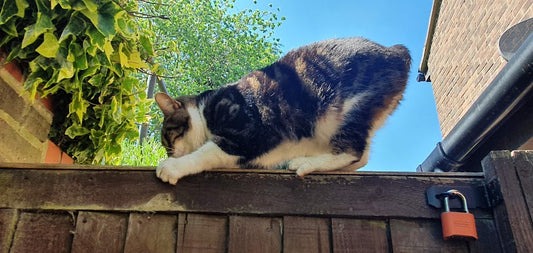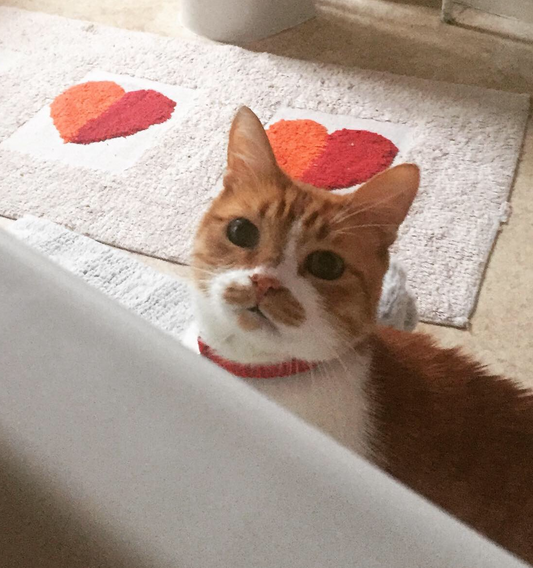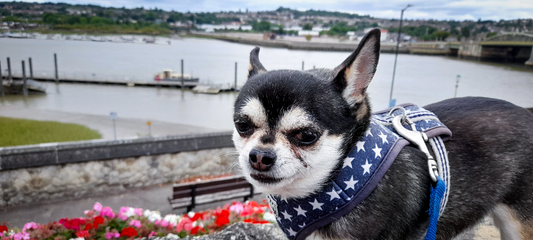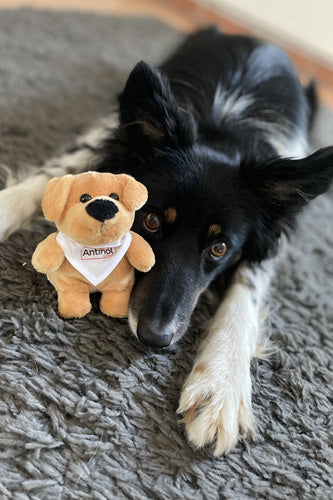Keeping dogs healthy and happy is our number one priority - from the superstar agility athlete to the beloved evening walk companion. Our goal is to make every dog’s day their best day.
And no dog is more deserving of having the best of days than those that have given the majority of their short lives in service of our protection. Particularly those serving in the forces, military and police. However, the life of a retired service dog is far from what it should be, and we caught up with the Thin Blue Paw to find out what reality is like for these post-retirement heroic hounds.
Right now there are approximately 2,000 serving police dogs across the UK; trained to protect the public, keep police officers and public figures safe, help fight crime, and sniff out drugs, cash and weapons. 2,000 heroic hounds working hard to protect us. All these dogs receive specialist training and, during their years of active service, receive the very best of care. But this all changes when they retire.
“Most people are unaware that police dogs don’t receive ongoing support once they retire. That means whoever adopts them – usually their handler, but sometimes other members of police staff or members of the public – are responsible for their care.
Police dogs have strenuous working lives; it’s a physical job that often involves lots of running, jumping and climbing which takes an immense toll on their bodies. As a result, most insurance companies refuse to insure ex-service dogs and, if or when they develop medical problems, the cost of their treatment falls solely to their new adopter.
“Ongoing medication or treatment can quickly add up, and unexpected illnesses or serious injuries can require expensive surgery or specialist treatment which, without insurance, could be out of reach for new owners who are left unsure as to where to turn. This is a huge burden to bear for adopters who want to give these amazing dogs the retirement they deserve.”
This lack of care and injustice to these courageous canines reached its tipping point in August 2020, when a group of dog lovers launched the Thin Blue Paw Foundation; a UK charity dedicated to supporting serving and retired police dogs.
One of the key aims of the charity is to provide financial assistance to the adopters of retired police dogs who need medical support, however the charity also campaigns for better welfare, support and protection for active working dogs.
“The Foundation has around 400 dogs registered from across the UK and, within its first four years, has issued an estimated £200,000 in grants to help pay for veterinary care, medication, therapies and treatment for a wide-range of problems, from arthritis to skin problems, spinal surgery to cancer treatment.”
The charity estimates that approximately 200 to 300 serving dogs retire each year and 30 of the UK’s 43 police forces offer zero support to help their dogs in retirement.
“Police dogs are loyal, dedicated and loving. They put their lives on the line every day to protect their handlers and the public. And when they retire and get to an age when they need us to show them love in return, the police turn their backs on them. That’s why we launched The Thin Blue Paw Foundation to be there for the dogs who need us.
We don’t want any owner to end up in a difficult situation where they have to choose between huge debts to pay for expensive veterinary treatment and making a heart-breaking decision to let their much-loved dog go.”
Case study 1: Enzo

Eight-year-old German Shepherd Enzo served with Police Scotland and Cheshire Police as a general purpose and firearms dog before retiring in November 2020 at the age of six due to hip dysplasia. He was adopted by police worker, Joy Bennett, but had to be rushed to the vets when he started vomiting blood. Scans and x-rays found a chicken bone lodged in his throat so he needed surgery to remove it and treat some cuts it had caused inside his throat. The bill, of almost £1,000, was covered by the Thin Blue Paw Foundation.
Case study 2: Charlie

Springer spaniel Charlie, 11, spent seven years helping Leicestershire Police find missing people and bodies as a cadaver dog. He retired in 2019 and was adopted by Robyn Smith and her family. He was playing when he ran into another dog and broke his leg, requiring surgery. He had a small metal plate and five screws fitted, costing more than £6,000, which came as quite a shock to his family. Luckily, the Thin Blue Paw Foundation paid the bill.
Antinol® is committed to helping the Thin Blue Paw Foundation in whatever way we can, and as fellow dog-lovers, we thought you might like to as well.
Help support the charity by making a small donation [donate here / https://donate.thinbluepaw.org.uk/ ]
Find out more about the charity [https://www.thinbluepaw.org.uk/]


